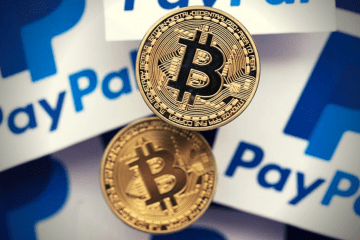Bitcoin didn’t perform as expected amid the COVID19 pandemic – Bloomberg report
A recent Bloomberg report said that Bitcoin failed to take advantage of the “perfect storm” created by the COVID-19 pandemic, falling short of becoming “digital gold.” When the outbreak of pandemic had just begun, many experts like Galaxy Digital CEO Mike Novogratz had predicted that “Bitcoin’s moment” was just around the corner.
While the US Federal Reserve printed billions of US Dollars and inflating its supply, Bitcoin’s supply was being reduced during its halving. Bitcoin was perceived as a hedge against economic uncertainty, perhaps a digital version of gold. However, the leading crypto has failed to live up to that reputation, according to the report.
Bloomberg editor, Joe Weisenthal, wrote in a market briefing that:
“Despite the extraordinary market volatility, it hasn’t surged to new heights. In fact, it continues to make a general trend of lower highs. This takes away the argument that an economic crisis creates a boom for Bitcoin.”
Weisenthal highlighted the distinct correlation between the price of Bitcoin and traditional markets over the last few months. On March 12, most global markets plummeted amid the pandemic and so did Bitcoin. The price of BTC dipped twice in two days, plunging from around $9,000 to as low as $4,100. Later, as the market recovered, so did Bitcoin. According to Weisenthal, this undermines the narrative that BTC has good portfolio diversification properties.
One of the biggest arguments backing Bitcoin is that it has a fixed inflation rate, which reduces over time until it effectively drops to zero. A symbolic moment of Bitcoin’s alternative (and fixed) monetary policy was its recent halving event, which reduced Bitcoin’s supply in half. This is an event that takes every four years. However, it failed to stimulate a price rally in the near term. Weisenthal said:
“The Bitcoin halving (a slowing of new supply) which many Bitcoiners championed as a likely catalyst for a move higher came and went without much impact. The Fed has engaged in extraordinary balance sheet expansion, and governments around the world are running major deficits, and it hasn’t led to the kind of inflation or currency collapse that many Bitcoiners would have predicted. So that undermines some of the popular stories about what would catalyze a Bitcoin boom.”
Bitcoin fever also appears to be moving back into traditional stocks. Modern apps like Robinhood are making it much easier for retail investors to get involved in stocks and shares easily.
Weisenthal said:
“Young people are discovering the stock market via platforms like Robinhood. So to the degree that people were putting money into Bitcoin because they liked volatility and action, there’s a new competitor on the block for those dollars.”
Source: fxstreet.com


